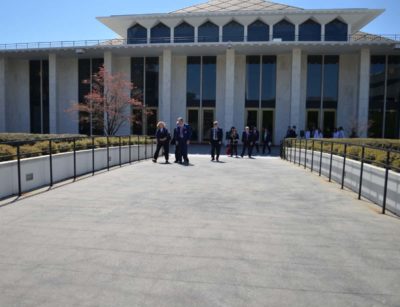Much of the recent discussion about public school teacher pay in North Carolina has focused on the “national average.” To the extent that policymakers want to target that average, they ought to consider how other workers in this state stack up against their counterparts across the country.
This column will not challenge the goal of North Carolina reaching the national average. That’s a subject for another day. It’s one my John Locke Foundation colleagues John Hood and Terry Stoops have addressed — on multiple occasions — in other forums. They have revealed significant flaws in the “national average” argument.
On a related note, Terry demonstrated recently that a cost-of-living adjustment would boost North Carolina’s current average teacher pay ranking from No. 29 among the 50 states to No. 20. That adjustment suggests North Carolina needs to do nothing special this year to raise teacher pay. This observer will not hold his breath waiting for policymakers to follow that course of action.
But one can hope that state budget writers will keep another important factor in mind: North Carolina’s private sector bears the brunt of the cost of paying public school teacher salaries. Given that fact, it makes sense to consider how closely this state’s private-sector workers stack up to the national average for salaries in the private sector.
I claim no credit for this observation. Another colleague, Carolina Journal investigative reporter Don Carrington, has made this type of computation several times since the 1990s. A former staffer in what was once known as the N.C. Employment Security Commission, Don spent much of his time in that job dealing with government data related to work and pay. Several years ago, when the “national average” debate generated multiple media headlines, Don found that in 2012 the average North Carolina private-sector worker earned a salary totaling 87.5% of the national average.
Now that the “national average” language has resurfaced, Don has updated his calculations. In 2017, the latest year in which numbers are available from the U.S. Department of Labor’s Bureau of Labor Statistics, the average private-sector salary was $48,986 in North Carolina. The national average was $55,338. North Carolina’s average stood at 88.5% of the national average.
There’s good news. Over the five years from 2012 to 2017, North Carolina private-sector salaries grew a full percentage point in comparison with the national average. That’s no small feat. But the average salary for a private-sector worker in this state still falls 11.5 percentage points below that average.
Now let’s return to the discussion of teacher pay. The National Education Association suggests that the average North Carolina teacher is paid a salary of $53,975. In comparison, the average teacher salary nationwide stands at $61,782.
Note that the average North Carolina public school teacher makes significantly more money than the average private-sector worker. (This is true of average teachers nationwide compared to their private-sector peers as well.) Second, the average North Carolina public school teacher earns a paycheck much closer to the national private-sector average than his friends and neighbors working in this state’s private sector.
Now for a little math. Using the NEA’s figures (with no adjustments), the average North Carolina teacher makes about 87.4% of the average of his counterparts across the country. Reaching the national average would require a pay increase of $7,807, or roughly 14%. That assumes that other states do nothing this year to increase their teachers’ pay. Pay hikes in other states would necessitate an even larger increase in North Carolina to reach the average.
But remember: The average private-sector worker in this state earns less than 89 cents for every dollar earned by peers across the country. If teacher pay reached the national average, teachers would be faring much better than their private-sector neighbors in comparisons with peers throughout the United States.
Nonetheless, North Carolina teachers fall a little short of their private-sector peers in a comparison of their pay to the national average. Raising average N.C. teacher pay to 88.5 of the national average — mirroring our private-sector ratio — would require a hike of $702. That’s a 1.3% increase. The new North Carolina average would be $54,677.
One suspects that all players in the current teacher pay debate — the state House, Senate, and governor — will support a pay hike this year of more than 1.3%. Legislative leaders already have signaled interest in boosting the state average to $55,000.
As they move forward, policymakers should keep in mind the private sector’s ability to foot the bill.





